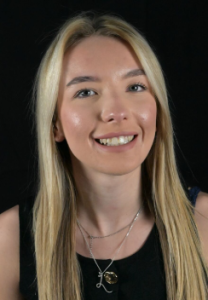A Day in the Life: Leoni Hampton, Assistant Psychologist at YMCA Together
Meet Leoni Hampton, one of YMCA Together’s Assistant Psychologists.
From supporting residents in Florence House and Bentley Road to engaging with young people at St Helens Children’s Listening Service, the work is as diverse as the people she works alongside.
Here, Leoni shares what a typical day looks like working in our homeless services.

Morning at Florence House
9:00 am – A cup of tea is always a priority. After my brew, I review the handover documents, note any updates, and prioritise the residents I need to check in with—especially after incidents or challenging behaviour.
For example, I may catch up with a resident in the lounge to see if they’d like to discuss their feelings about a recent confrontation with another resident.
Then, as a team, we’ll reflect on what went well and identify areas for improvement. We often use mapping—a technique drawn from Cognitive Analytic Therapy (CAT)—to help us understand what may have caused the issues. CAT is a fantastic way of exploring the relational nature of problems.
_____
10:00 am – The residents are typically all awake by now. You’ll usually find me in the lounge chatting with them about activities they might enjoy. Often, we’ll have the TV on in the background—Frasier or Sky Sports News are favourites.
Getting to know the people I work alongside in an informal environment helps to build trusting relationships gradually.
Assistant Psychologists rely on formulations and hypotheses to guide our work, so mornings can also involve reading over these to consider what direction some of my work might take today.
_____
11:00 am – I’ll have a session with a client, where we work towards achieving their personal goals. These one-hour sessions may involve teaching emotional coping skills or, sometimes, just giving them space to talk and feel heard.
Afterwards, I write up my notes and, with the client’s consent, pass any relevant information onto our team.
_____
12:00 pm – Time for a quick bite to eat before driving to Bentley Road for the afternoon.
_____________________________________________________________________________________________
Afternoon at Bentley
1:00 pm – I facilitate a one-hour reflective practice session with our team, focusing on an individual resident. Together, we discuss the resident’s behaviour and explore perspectives. I usually create a CAT map in real-time, based on our discussion. Occasionally, I will share the completed map and an email summary afterwards. Reflective practice is a good opportunity for the team to pause and think about the people we work alongside.
_____
2:30 pm – Sometimes my work is reactive, with moments when a client requires support immediately. Mid-afternoon is my chance to invite them for a one-to-one chat about their situation. We’ll often chat over a coffee or go for a walk.
Here, I decide whether I can help in the moment or offer to help solve their problems alongside the team. Often, giving people the space to talk is all the help they need.
____
3:00 pm – Resident Wellbeing Activities. We recently took advantage of the good weather with a picnic and board games in the garden. These activities provide an opportunity to strengthen relationships and offer support in an informal setting.
____
4:00 – 5:00 pm – When possible, I use the last hour of the day for admin. This includes writing up notes on Mainstay and updating the handover with concerns or information that the night team may need for their shift.
Daily Highlights & Challenges
Being an Assistant Psychologist is rewarding but intense. Because I naturally want to support everyone, I have to be mindful about taking care of my emotional wellbeing.
Challenge: I’ve learned to manage by setting boundaries, leaving work at work, and practising self-care outside working hours. I also take time to reflect on my emotions during supervision and team discussions.
While difficult days are part of the job, they sit alongside many fulfilling experiences.
Highlight: This month, a client I’ve been working alongside, who has been self-critical due to an abusive past, began to show self-compassion. She was able to recognise and challenge her self-critical thoughts during our sessions, marking a significant step in her progress.
Why Every Day Matters
Of course, every day is different at YMCA Together. And taking the time to step away from the planned schedule can make a meaningful difference to our residents.
One of my most memorable moments was after a wellbeing activity where we decorated cupcakes—something one resident had never done before. He thanked me for the opportunity and spoke about how people often don’t give him a chance because of his experience of homelessness. He said that being treated like a person made him feel human.
It reminded me how even the simplest activities can carry the deepest value.
_____________________________________________
